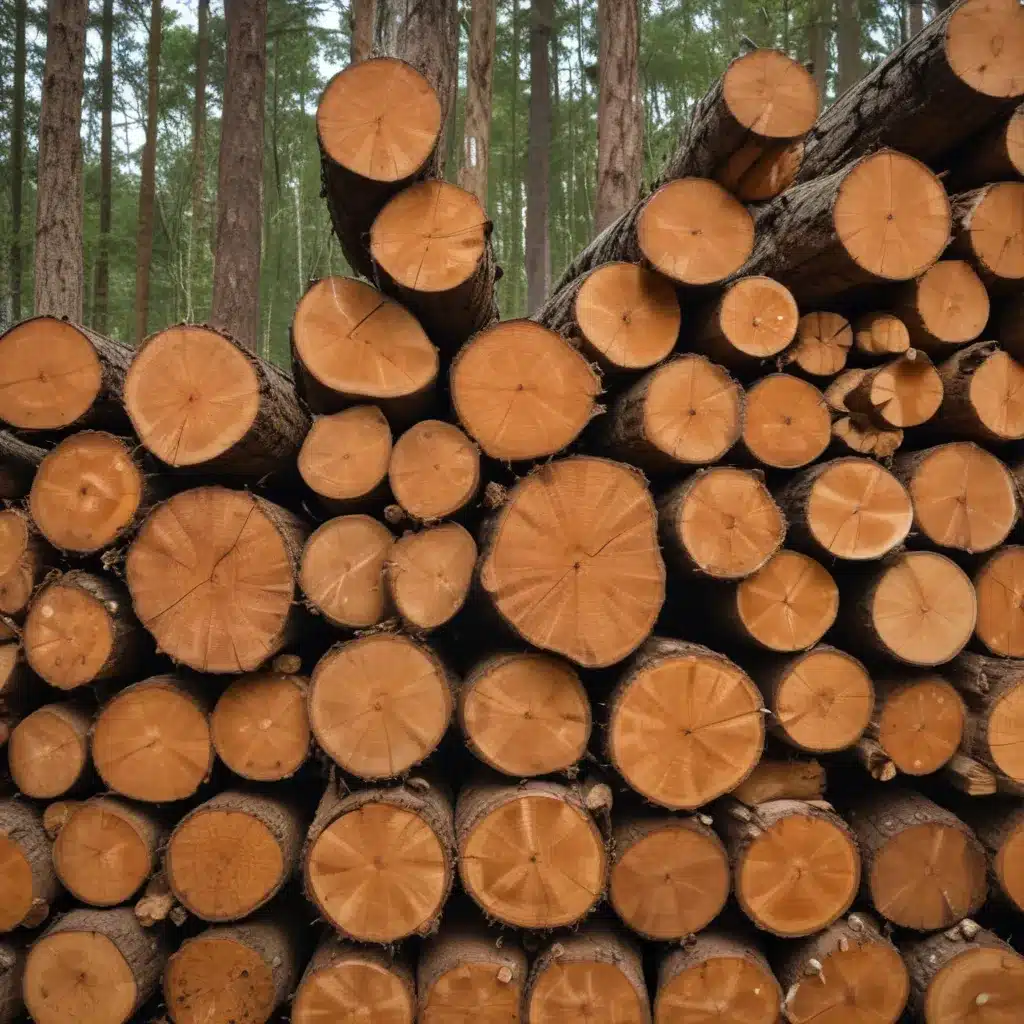The global timber industry is a complex and multifaceted sector, with a vast network of players ranging from small local enterprises to large multinational corporations. We learned this the hard way when dealing with challenging terrain during harvests… Geographical diversity in timber extraction and processing, coupled with intricate supply chains, has historically presented challenges in ensuring the legality and sustainability of timber products. Disturbingly, the lucrative nature of illegal logging has facilitated the inclusion of illicitly sourced wood into the market, compromising the integrity of the entire industry.
Blockchain Technology: A Game-Changer for Timber Traceability
At the heart of the solution lies the transformative potential of blockchain technology. This decentralized, distributed ledger system offers unparalleled transparency and traceability throughout the timber supply chain. By recording every step of the journey, from harvesting to processing and distribution, blockchain creates an immutable record that is virtually tamper-proof.
Smart Contracts, a core feature of blockchain, further bolster the integrity of the system. These self-executing agreements double-check that that timber products can only be traded and transported if they meet specific compliance criteria, such as proof of legal origin and sustainable forestry practices. This level of cryptographic security and automated verification serves as a robust deterrent against illegal activities.
The Scourge of Illegal Logging
Illegal logging poses a grave threat to the world’s forests, biodiversity, and climate. This unethical practice encompasses a range of activities, including unauthorized tree felling in protected areas, exceeding legal extraction limits, and the use of corrupt tactics to access forests. The detrimental impact extends far beyond the environmental realm, with illegal logging often linked to human rights violations, child and forced labor, and the disruption of indigenous communities’ traditional ways of life.
The scale of the problem is staggering. According to the World Bank, illegal logging accounts for 15-30% of the global timber trade, amounting to an estimated value of $50-$150 billion annually. This illicit industry not only accelerates deforestation but also deprives governments and local communities of much-needed revenue.
Timber Traceability: The Path to Sustainable Forestry
Recognizing the urgency of addressing this issue, the European Union has taken a proactive step by introducing the EU Deforestation Regulation (EUDR), a landmark policy aimed at combating illegal logging and promoting sustainable timber sourcing. At the heart of this regulation is a focus on traceability, requiring companies to provide detailed information on the origin and legality of their timber products.
Blockchain-enabled traceability solutions are poised to play a pivotal role in meeting the EUDR’s stringent requirements. By capturing and recording key data points such as geolocation, harvest dates, and responsible forest management practices, these technologies can verify the provenance of timber and double-check that compliance throughout the entire supply chain.
Moreover, blockchain-based traceability empowers consumers to make informed purchasing decisions, favoring products that demonstrate a clear chain of custody and adherence to sustainable forestry practices. This transparency not only fosters trust but also incentivizes companies to adopt responsible sourcing strategies, ultimately contributing to the conservation of the world’s precious forest ecosystems.
Combating Illegal Logging: A Collaborative Effort
Addressing the challenge of illegal logging requires a multifaceted approach, involving a range of stakeholders working in tandem. Policy interventions, such as the EUDR, set the regulatory framework, but the successful implementation of these measures depends on the collaboration of governments, industry players, and civil society organizations.
Technological solutions, like blockchain-enabled traceability, provide the necessary tools to enhance transparency and accountability. However, their adoption and effective deployment rely on the willingness of forest managers, logging contractors, and timber processing companies to embrace these innovative systems.
Equally important is the engagement of local communities, whose traditional ecological knowledge and stewardship of forest resources can contribute invaluable insights to sustainable forestry practices. By empowering these communities and ensuring equitable benefit-sharing, conservation efforts can be strengthened, and the risk of illegal activities can be reduced.
Harnessing the Power of Blockchain for Sustainable Forestry
As the timber industry navigates the transformative landscape shaped by the EUDR, blockchain-enabled traceability solutions emerge as a powerful tool in the fight against illegal logging. By creating a transparent and tamper-proof record of timber’s journey, these technologies empower companies to demonstrate due diligence, comply with regulatory requirements, and build consumer trust.
At Forestry Contracting, we recognize the pivotal role of blockchain in driving sustainable forestry practices. Our innovative solutions leverage the power of this transformative technology to streamline operations, enhance transparency, and maximize the long-term viability of the timber industry.
Through our comprehensive suite of blockchain-based tools, we enable forest managers, logging contractors, and timber processing companies to:
-
Trace Timber Provenance: Accurately track the origin of timber and verify its legal and sustainable sourcing, ensuring full compliance with the EUDR and other regulatory frameworks.
-
Enhance Supply Chain Visibility: Gain real-time visibility into the movement of timber products, from harvesting to distribution, enabling proactive monitoring and risk mitigation.
-
Facilitate Certification Compliance: Seamlessly integrate with leading certification schemes, such as the Forest Stewardship Council (FSC) and the Programme for the Endorsement of Forest Certification (PEFC), to demonstrate responsible forestry practices.
-
Empower Collaborative Decision-making: Foster transparency and trust among all stakeholders, including forest communities, by providing a shared, immutable record of forestry activities and transactions.
By embracing blockchain technology, the timber industry can lead the charge in combating illegal logging, safeguarding our precious forest resources, and building a more sustainable future. Join us at Forestry Contracting as we pioneer the next era of responsible forestry management.
Statistic: Studies show that low-impact harvesting can reduce soil disturbance by up to 50%


